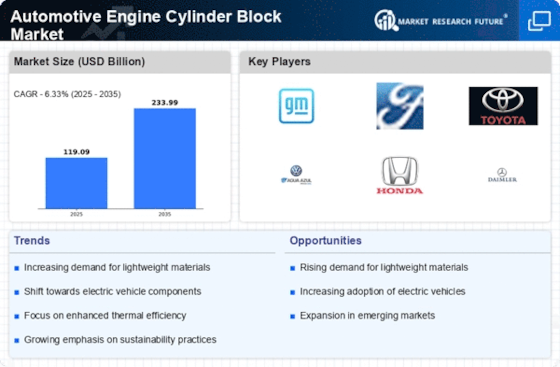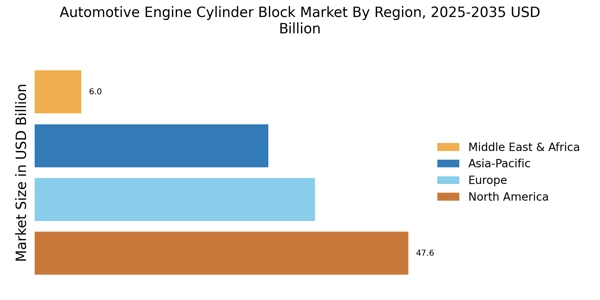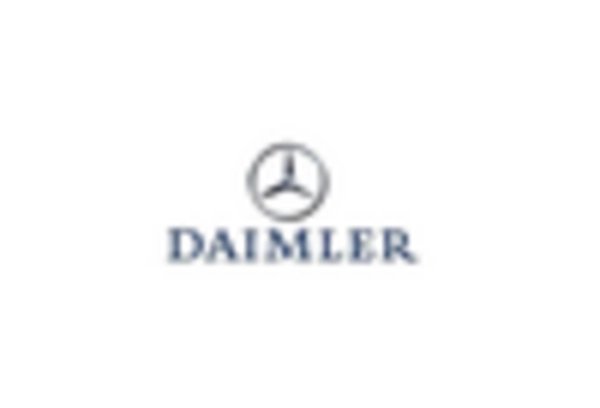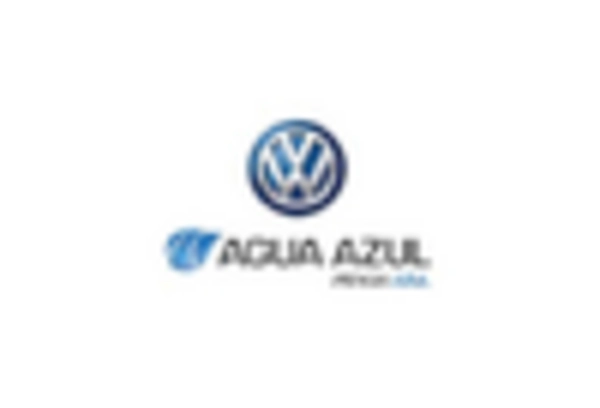Emerging Markets and Economic Growth
Emerging markets are becoming increasingly vital to the Automotive Engine Cylinder Block Market. As economies in regions such as Asia and South America continue to grow, the demand for automobiles is on the rise. This growth is accompanied by an increasing need for efficient engine components, including cylinder blocks. Manufacturers are likely to focus on these regions to capitalize on the expanding automotive market. Recent reports indicate that the automotive sector in emerging markets is projected to grow at a rate of 6% annually, which could significantly impact the Automotive Engine Cylinder Block Market. This trend suggests a promising future for manufacturers willing to invest in these burgeoning markets.
Increasing Demand for Fuel Efficiency
The Automotive Engine Cylinder Block Market is experiencing a notable surge in demand for fuel-efficient vehicles. As consumers become more environmentally conscious, manufacturers are compelled to innovate and produce engines that maximize fuel economy. This trend is reflected in the growing adoption of advanced engine technologies, which often require sophisticated cylinder block designs. According to recent data, the market for fuel-efficient vehicles is projected to grow at a compound annual growth rate of approximately 5% over the next five years. Consequently, the Automotive Engine Cylinder Block Market is likely to benefit from this shift, as manufacturers seek to enhance engine performance while reducing fuel consumption.
Growth of Electric and Hybrid Vehicles
The rise of electric and hybrid vehicles is reshaping the Automotive Engine Cylinder Block Market. As manufacturers pivot towards electrification, the demand for traditional internal combustion engines is evolving. However, hybrid vehicles still rely on engine components, including cylinder blocks, to optimize performance. This transition presents both challenges and opportunities for the market. The increasing adoption of hybrid technology is expected to sustain demand for engine components, albeit in a modified form. Market analysts predict that the hybrid vehicle segment will account for a substantial share of the automotive market, thereby influencing the Automotive Engine Cylinder Block Market in the coming years.
Regulatory Pressure for Emission Standards
The Automotive Engine Cylinder Block Market is significantly influenced by stringent emission regulations imposed by governments worldwide. As nations strive to meet environmental targets, automakers are under pressure to develop engines that comply with these standards. This has led to an increased focus on the design and manufacturing of cylinder blocks that facilitate lower emissions. The market is witnessing a shift towards technologies that enhance combustion efficiency and reduce harmful emissions. Data suggests that the automotive sector is expected to invest heavily in cleaner technologies, with projections indicating a potential market growth of 4% annually in response to these regulatory pressures within the Automotive Engine Cylinder Block Market.
Technological Advancements in Engine Design
Technological advancements are playing a pivotal role in shaping the Automotive Engine Cylinder Block Market. Innovations such as computer-aided design (CAD) and simulation technologies enable engineers to create more efficient and durable cylinder blocks. These advancements not only improve the performance of engines but also contribute to weight reduction and enhanced thermal efficiency. The integration of these technologies is expected to drive the market forward, as manufacturers increasingly invest in research and development. Recent statistics indicate that the market for advanced engine components is anticipated to reach a valuation of several billion dollars by 2026, underscoring the importance of innovation in the Automotive Engine Cylinder Block Market.

















